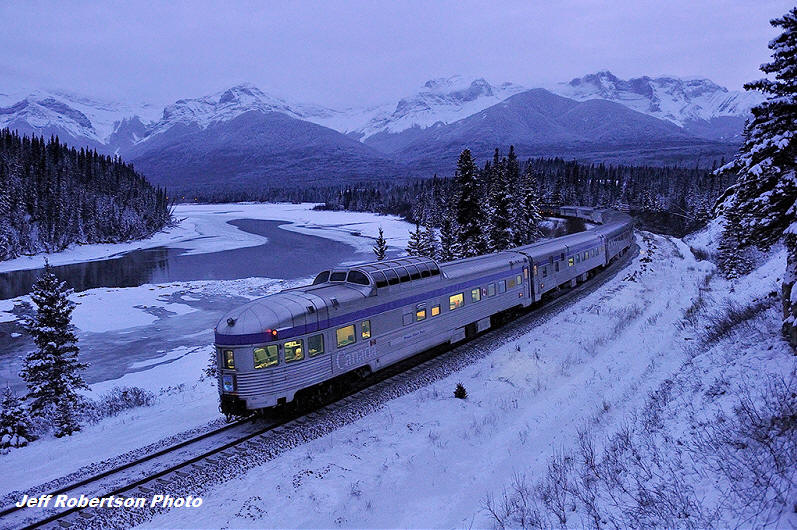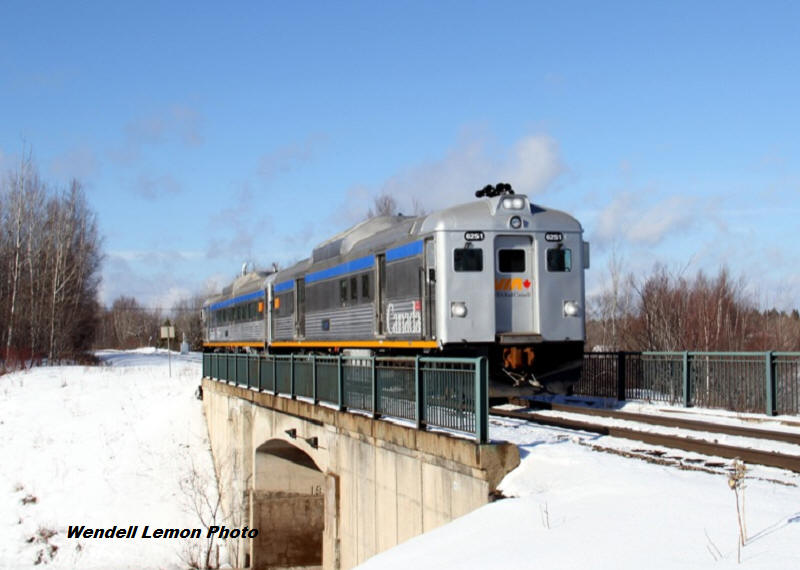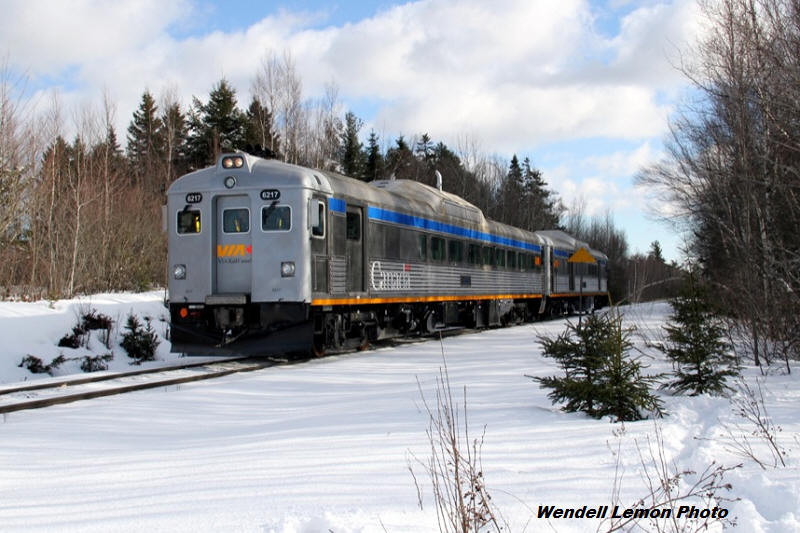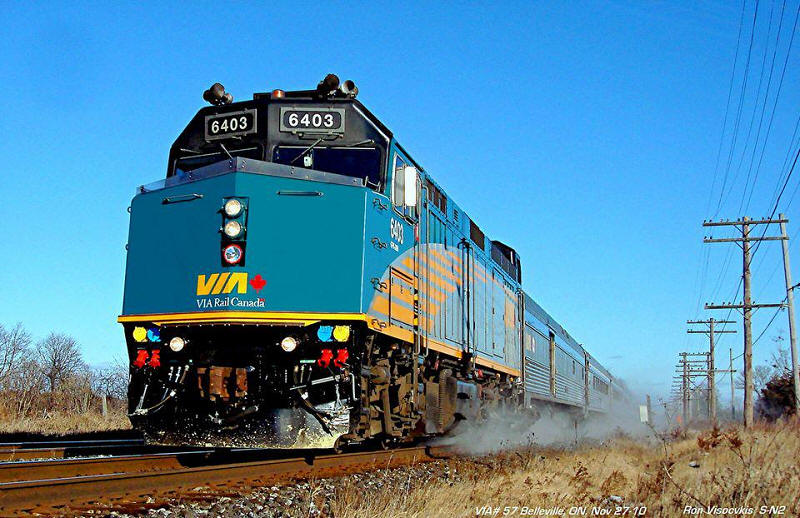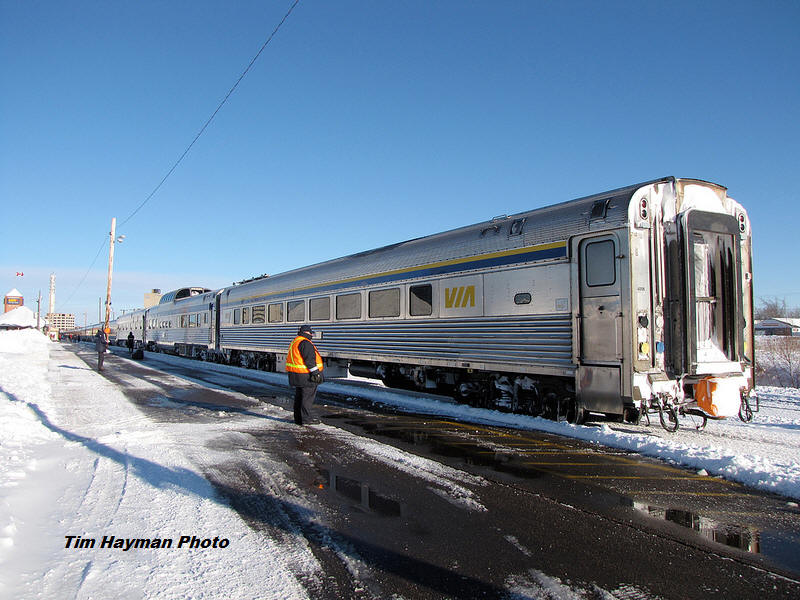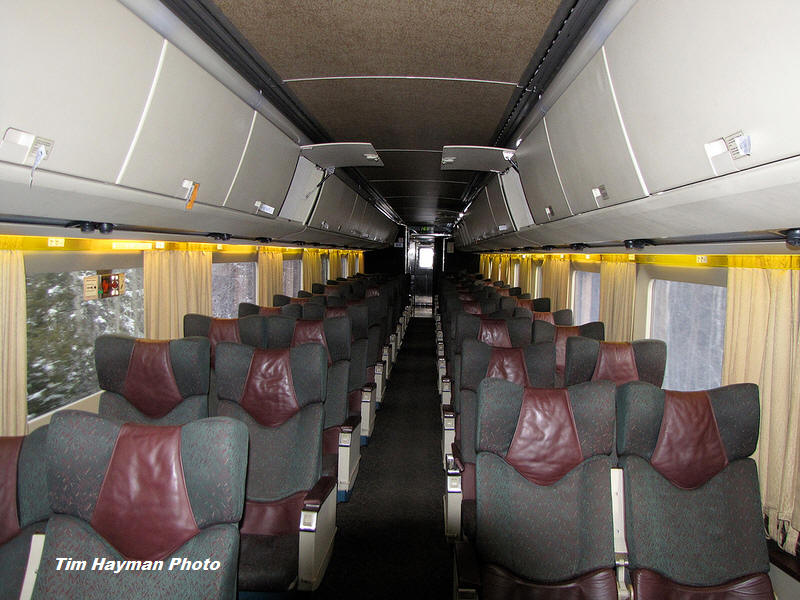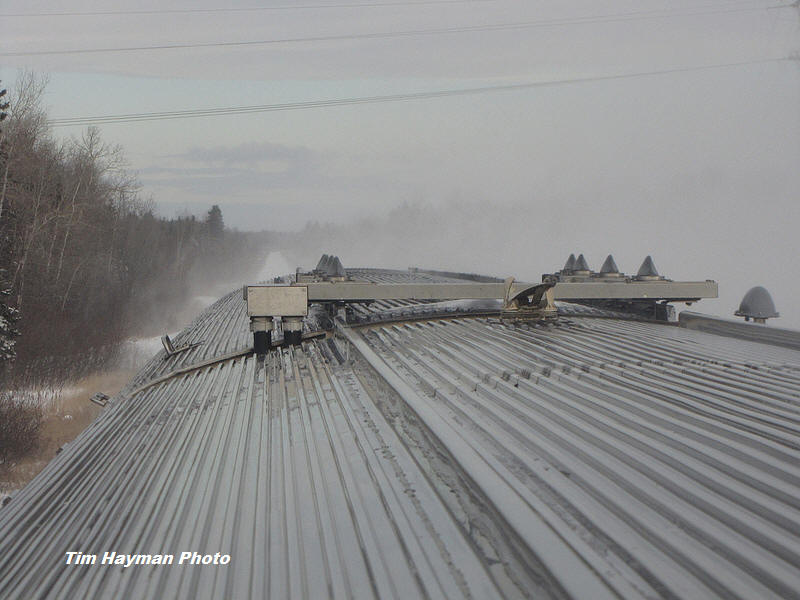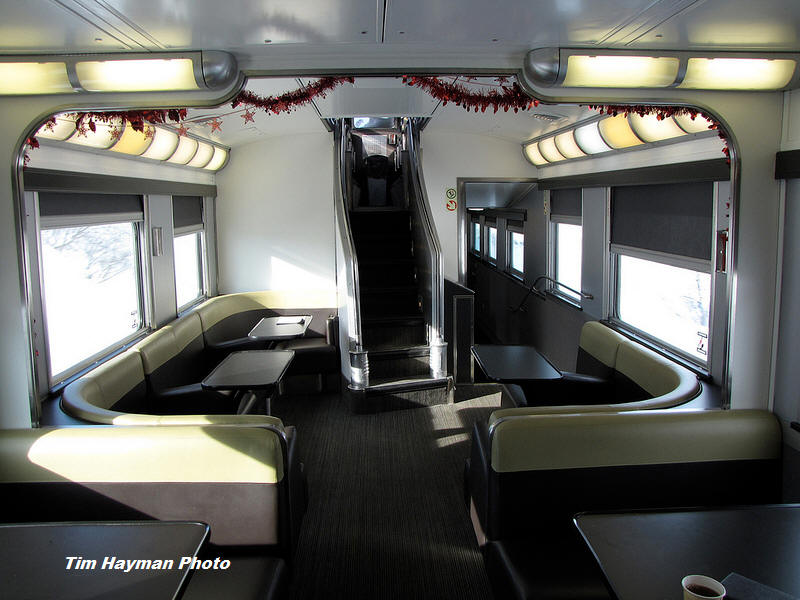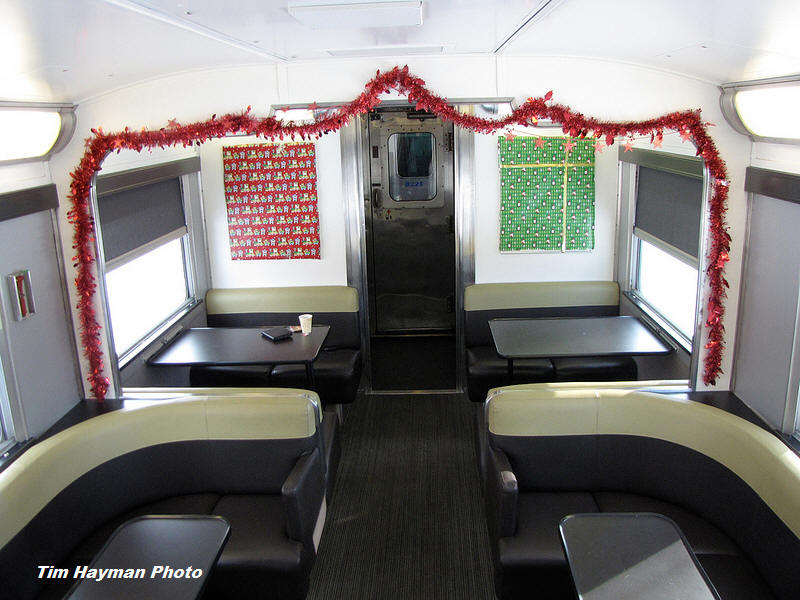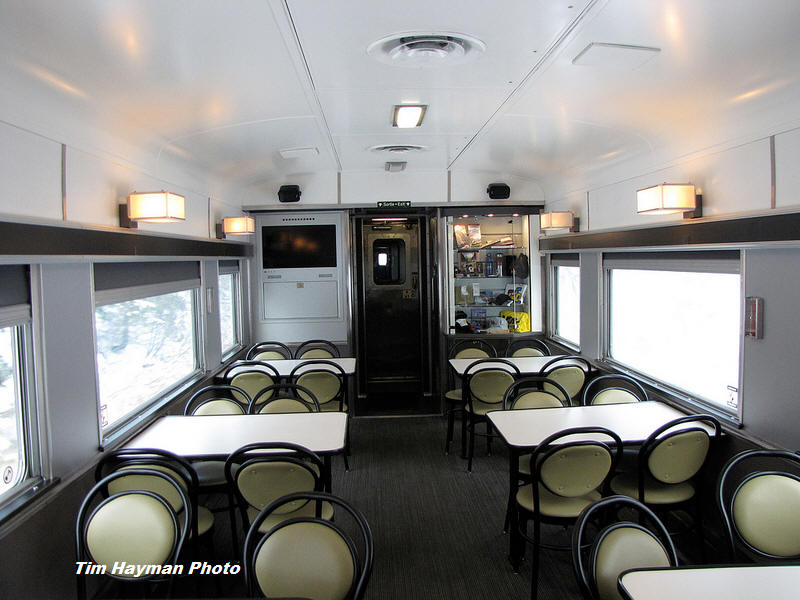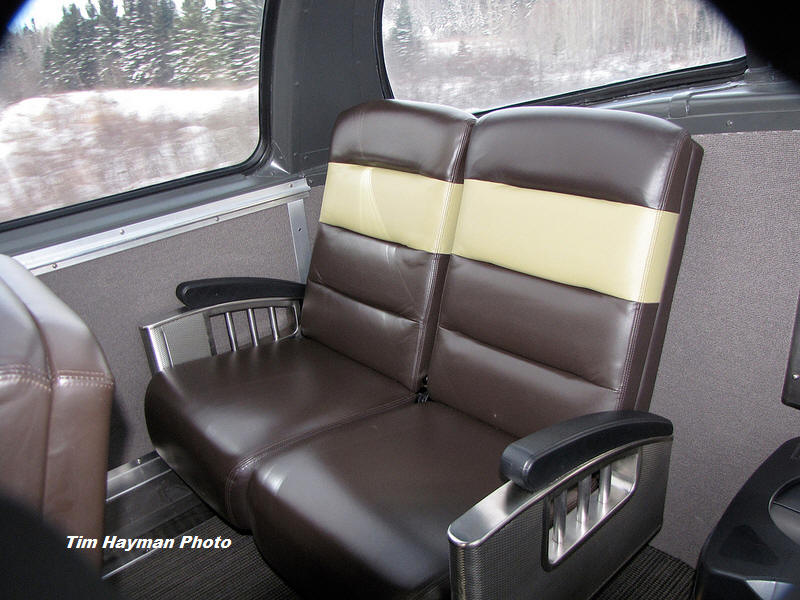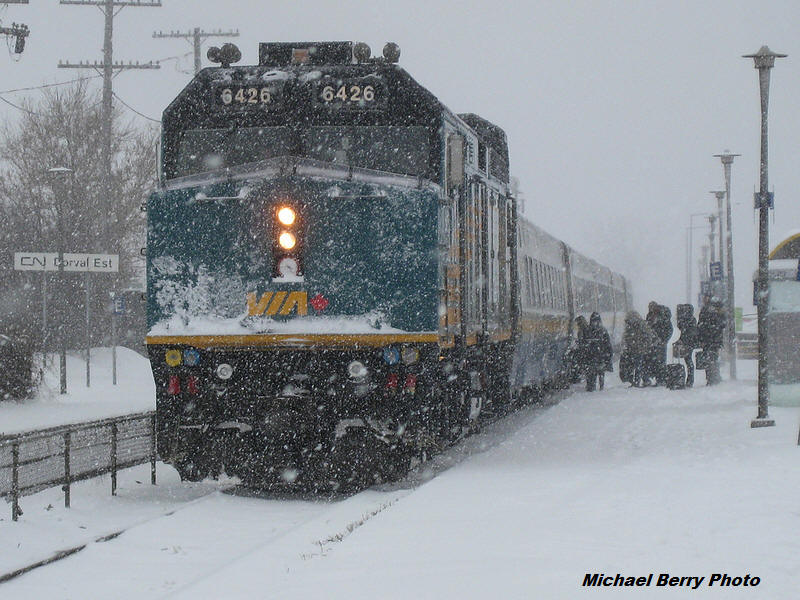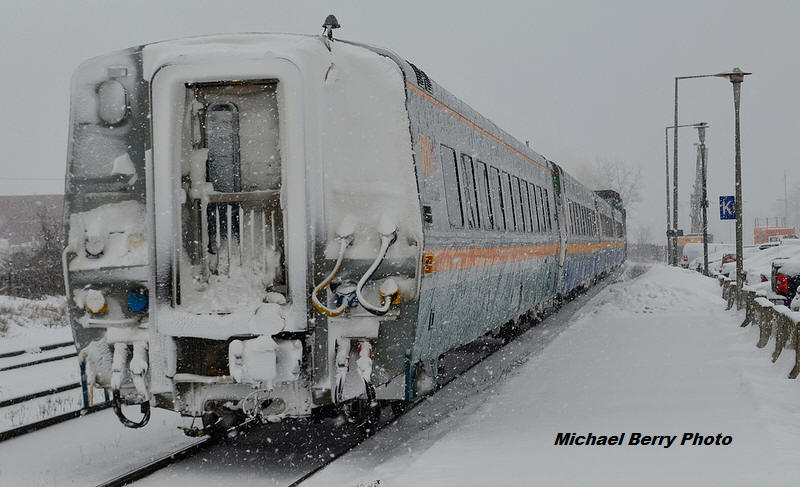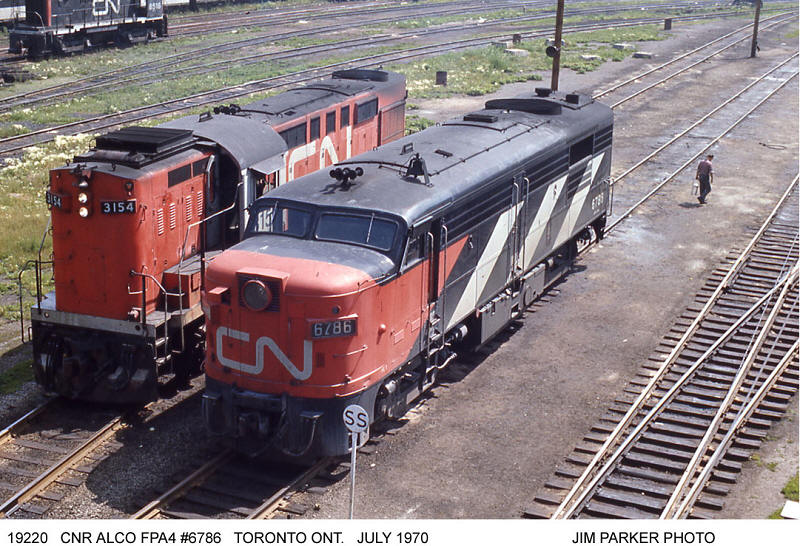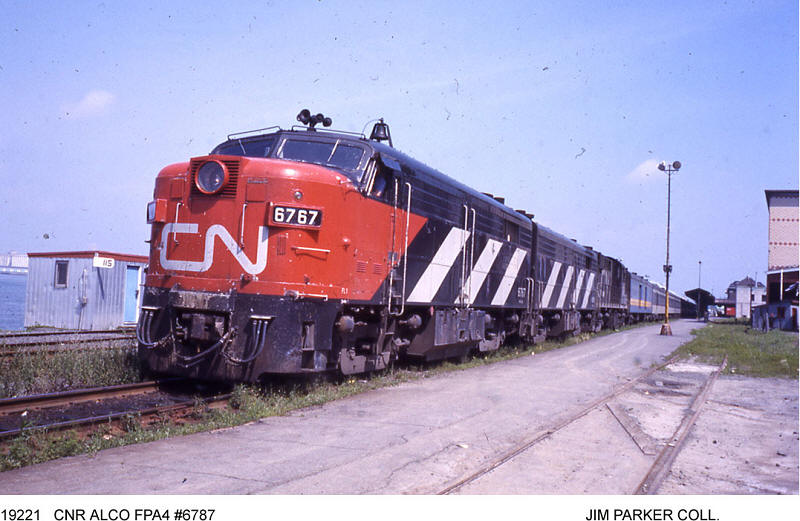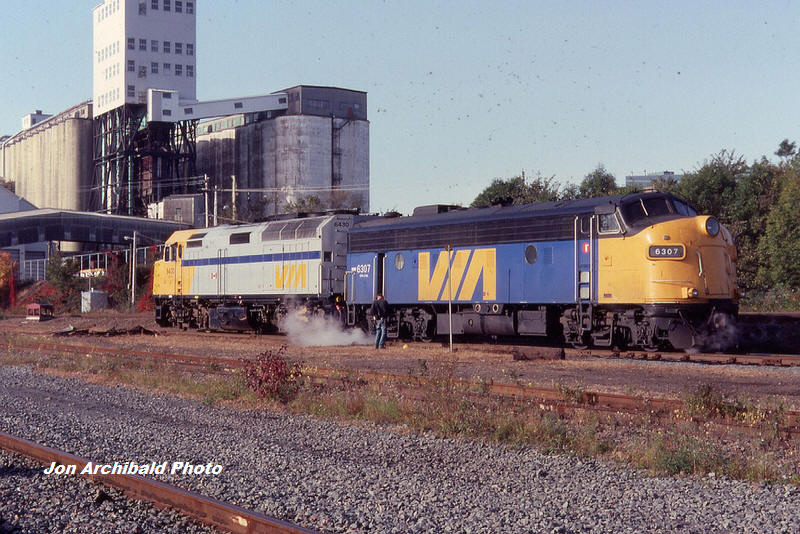Senior VIA News Editor (East) Tim HaymanVIA News Co-Editor (West) Terry Muirhead
GOT VIA NEWS? CLICK HERE TO EMAIL IT TO US! vianews@canadianrailwayobservations.com
A Word from the VIA Editor – “Take The Train!” This is the first “editorial” type piece I’ve written for this column, and I don’t yet know if I’ll write more like it. If you’re just interested in seeing the latest news and some photos of what’s happening with VIA Rail, then go ahead and scroll right past this down to the rest of the column. I do hope however that you will read this piece, and that it will perhaps be of interest to you (and feel free to let me know what you think via e-mail). The other day, VIA announced another 50% off sale across their network, something they’ve now made a regular habit of doing. As I excitedly began planning how to take advantage of this sale, I got to thinking about something I’ve considered writing about for some time. Many of us in the railfan community spend a lot of time around trains, whether it be trackside watching or photographing them, or doing some “armchair railfanning” by watching videos of trains online, looking through online or print collections of photographs, and discussing all manner of train-related stuff with friends or in online forums. Some of us even build models of the real thing to populate miniature worlds in our homes. Yet a surprising number of those who engage in all of these activities with regularity, and who have a great love for trains, spend very little time in them. No, I’m not talking about illegally climbing all over freight cars or onto locomotives; I’m talking about actually riding the real trains that we have in this country. It always amazes me to talk to people who, like myself, have a lifelong love affair with trains, and some with even a particular interest in VIA Rail, but who have not taken a train in years. This always takes me by surprise. What better way is there to really enjoy and experience trains than to ride them? Taking the train is a transportation experience like no other. The comfort, space, and amenities are unmatched by other modes of travel, especially on the long-distance services where sleepers, lounges, diners and dome cars abound. Jason Shron (the man behind Rapido Trains who has recently built a full-size VIA coach in his basement: see the story below) has often remarked that there is no more relaxing place on earth than on board the train. When it comes to transportation options, I most certainly agree. The stresses of driving, the hassles of the airport, the crammed spaces in buses and shuttle vans; the train removes all of these, and adds safety, the convenience of downtown-to-downtown service, and a superior view of the countryside. Above all, it gives the rider a first-hand experience of the railway. From the perspective of a railfan, train trips should be a fascinating time. For passenger rail enthusiasts, the allure is obvious; but for freight rail fans, it is very much there as well. VIA runs on freight trackage, and offers what are likely the best views of many CN facilities, yards, and operations that you can get. Beyond that, time spent riding the rails can help to familiarize you with routes and railway operations in a first-hand fashion. Much of what I know about the way railways operate is thanks to the first hand observations I have made on many of my trips with VIA. There are of course those detractors who will bring up the downsides of rail travel. This is particularly true when I bring up the Ocean, a train I ride regularly to travel between the east coast and central Canada. “It takes so long”, some will say. “Why not just fly?”. There are of course merits to flight, with speed being one of them; but it is here that I feel a certain appreciation of the value of the experience must be factored in. Many of my trips are made at Christmas, to visit family. Yes, I could get home faster if I flew, but that experience is often stressful and exhausting. The train is anything but that; it is relaxing and enjoyable, and can be productive if I choose to bring work along with me. On any of those trips, the extra time on the train is part of the time off, part of my holiday. It is often the only real time I have over breaks to really relax. Certainly, can that value not outweigh the “extra time” the trip takes? In the midst of saying all this, I must acknowledge that there are many flaws in our Canadian passenger rail system. One look at the rail systems of Europe and Asia, or even countries more similar to our own like Australia or the United States, and you’ll see exactly how far behind the rest of the developed world we are. Most significant among the flaws is the lack of service. Many people in this country, and indeed many of those reading this piece, do not have easy access to VIA Rail services. Even for those who do, these services are becoming less and less convenient. This is regrettable, but it too often leads to many people thinking “well we have such a lousy train service in this country, so I won’t bother using it”. I understand people who don’t have access, but I am amazed by how many people carry such attitudes while living in communities served by VIA Rail. Is there some merit in this? Is it meant to be a form of protest, a sign of discontent? Perhaps, but it isn’t necessarily helping anything. Does it stem from the belief that one cannot simultaneously be discontent with something and make use of it? This is rather flawed logic. Also surprisingly, many of those with the most qualms about VIA’s current service admit that they haven’t been on a train in years. Either way, when it really comes down to it, the ones losing out the most are, in my humble opinion, those railfans who choose not to take in the full railway experience. I encourage you, the next time you are planning a trip, think about this: can I do part or all of the trip by train? The fact is, VIA Rail is crippled partly because of short-sighted decisions by bureaucrats and politicians; but it may continue to be crippled by low ridership. Perhaps one way to help ensure the future of VIA Rail, or any form of passenger rail in this country, is to make use of what we do have. It is also important to discuss the problems and potential solutions, and to voice concerns to elected representatives and the wider public, but actually using the service is certainly a key way to help voice your support. VIA’s Express Deals, Escape Fares, and now-frequent 50% off sales make trips much more manageable. As well, their Preference points system is one of the most generous rewards programs around. This is not meant to be a pure advertisement for VIA Rail, but it is meant to be a reminder that there are plenty of options there to make these trips easier on the budget. In writing this, it is really not my intention to stand high and mighty, as though bringing judgment upon all those who do not share my particular enthusiasm for rail travel. It is simply meant to be an appeal to railfans throughout this country, and abroad, to really think about taking the train more often. Use it for travel you planned anyway, or as an excuse for a trip, even just a short excursion. The train doesn’t have to be just a means of getting somewhere; it can be the experience all in itself. It is my firm belief that the best way to really experience the railway, short of working on one, is to ride the train. Besides, we have no idea how long what little rail service we have left will survive. Let’s at least try to make use of it while we can, so we don’t one day have to regret never having taken the chance to ride while the trains still ran. Your Senior/East Coast VIA Editor, Tim Hayman viaraileast@canadianrailwayobservations.com
The VIA Rail locomotive roster is now a monthly installment and we will soon introduce additional historical notes on each locomotive, as appropriate, plus more information on the locomotive classes.
The second to last F40PH-2d rebuild released from CAD Railway Services in late November VIA 6440 experienced operating problems in December, and was returned dead-in-tow to CAD for repairs.
The VIA Rail equipment leased to AMTRAK has been returned: Over the course of January, VIA Rail operations were affected by a number of blockades associated with the Idle No More First Nations protests. Protestors blocked CN lines across the country on various days in an attempt to draw attention to their cause. VIA trains were affected in the Corridor and on both eastern and western services, with some trains heavily delayed, and passengers in some cases being transferred to buses to continue their journey. The equipment for the Chaleur (Trains 16/17 to Gaspe) was stuck in New Carlisle for a few days in late December, resulting in at least one unique Ocean/Chaleur consist (see VIA photos section). On January 9th, VIA issued a press release announcing that they had seen an increase in holiday traffic on the Canadian this year. Although this figure is encouraging for the Canadian, it is yet unknown how much business VIA lost with reduced frequencies on the Ocean, a train which typically sees a bulge in traffic at Christmas time (so much so that it ran 7 days a week at that time over the last few years). You can read the release at the link below: Many of us enjoy riding VIA Rail trains, or watching and photographing them as they pass. Some of us build scale models of the real thing, to display or to run on miniature reconstructions of the real lines in our homes. Jason Shron loves VIA as much as, well, probably the rest of us all put together. It was that love of VIA trains, particularly the Turbo, that motivated him to start Rapido Trains, a model railroad manufacturer now widely known for their ridiculous commitment to building detailed and accurate models of mostly Canadian passenger prototypes. As fantastic as all of that is, Jason’s real masterpiece is something else in his basement, which we recently completed and unveiled to the world. Over the last 4 years, Jason has devoted more than 2500 hours of his time into building an accurate, full-scale replica of one end of a VIA Rail CC&F coach…in his basement! This is one thing that really needs to be seen to be believed. Of course if you’re just seeing it now, you may have been living under a rock for the last few weeks (as it has received extensive exposure in both the railfan community and on major news networks…online, on television, and in print). Well done Jason! You can get a glimpse of the finished product in this Youtube video: http://www.youtube.com/watch?v=YjMnWdIWjWs You can also read more about the coach, see more photos, and follow the progress of Jason’s future HO scale layout at his new website (soon to feature a shop selling various VIA memorabilia and the like): http://www.kingstonsub.com/ VIA “Guru” Jason Shron interview:
As usual, check out VIA’s Capital Investment Projects page for information, photos, and news about VIA’s ongoing projects. There have been no recent updates, but the site remains a useful resource on VIA’s ongoing projects, and we anticipate new updates in the near future.
Although progress has been slow, several of the RDCs at IRSI are nearing completion (though oversight is now being carried out by CAD personnel). On January 17th, VIA Rail and CAD personnel were testing nearly-complete RDC-4 #6251 and RDC-2 #6217 between Gordon Yard and Pacific Jct. on CN's Springhill Sub around Moncton, NB. The units are nearly complete, and should be heading west to be used in Sudbury-White River service soon. This is the first we've seen of one of the RDC-2s rebuilt and wearing the new scheme. Note that 6217, like RDC-4's 6250 and 6251, has received a new high intensity third headlight below the main headlight, and now has silver painted ends, reflective yellow sill stripes, large Canada lettering, and new VIA logos.
Ron Visockis took this nice shot of VIA train #57 at Belleville, ON November 27th, 2011 led by immaculate F40PH-2d CAD rebuild 6403 leading a nice set of stainless cars.
Over the past year, VIA has begun operating with a new arrangement on the combined Ocean/Chaleur (VIA Trains 14/15 and 16/17). The two trains are now scheduled to make every departure together as far as Matapedia, and to combine at Matapedia on every westbound trip. In the past, the two trains were marshaled with the locomotives from both trains at the front, and the Chaleur cars placed ahead of the Ocean’s equipment. To save time and simplify the operation, VIA is now combining the trains as a “J-train”, with the full Chaleur consist (including locomotive) coupled directly behind the consist for the Ocean. The mid-train locomotive then provides only HEP for the Chaleur equipment, while the lead locomotives provide all tractive effort and HEP for the Ocean. This is now possible due to the extra generators added to the rebuilt F40s. This process is made easier by the fact that the Ocean now has a Skyline car on the rear as a year-round fixture (it is unclear if a Park will return in the summer). To make winter operations, VIA has started placing an orange cover over the rear coupler, to prevent snow and ice build up. This cover can be seen in the photo below. At the end of December, the equipment from the Chaleur was stuck in New Carlisle due to Idle No More protest blockades. The second set of equipment had left Montreal to run as far as Matapedia (with passengers bussed from there), leaving both sets away from Montreal for the December 30th departure of VIA 14/16. To compensate for this, VIA added a single HEP-2 Club car to the rear of VIA 14 to act as the consist for VIA 16. Passengers bound for Matapedia and beyond were put in this car, while sleeper passengers were put in free spaces in the VIA 14 sleepers. All passengers detrained at Matapedia, and the HEP2 Club deadheaded on the end of VIA 14 to Halifax, and back again the next day. VIA Editor Tim Hayman was on board VIA 14 on Dec. 30th/31st, and was able to photograph both inside and outside the HEP-2 Club when it was deadheading. The photos below show the empty interior, as well as the car on the tail of the Ocean at Moncton. Having the car behind the Skyline offered a unique view of the roof-mounted WiFi equipment, which is also pictured below.
One of the Skyline in operation on the Ocean over the winter season was a recently refurbished car, with new interior upholstery, carpets, and other finishing details. The photos below show a glimpse inside newly refurbished Skyline 8517.
December and January have brought much cold weather and a lot of snow for VIA to contend with, especially in eastern Ontario and into Quebec. Michael Berry captured the feel of this winter very well in these photos. First, we see VIA 6426 with LRCs in tow, loading passengers in Dorval on January 19th amidst heavy snow. Then on the same day, we see the rear of a rebuilt LRC coach, barely recognizable with its heavy snow cover!
CN FPA4 6786 and Tempo RS18 3154 appear to be having a chat as they rest between assignments at the Spadina Diesel Shop in July 1970.
Jim Parker submitted these two shots from his collection: CN FPA4 6767 and FPB4 and RS18 head what appears to be the “Ocean”. Location and date unknown.
In the fall of 1991, VIA was in the beginning stages of changing from steam heat to Head End Power (HEP). Jon Archibald photographed this interesting pairing, with VIA F40PH-2d 6430 backed by rebuilt VIA FP9A 6307 in Halifax, NS. VIA was still using FP9A’s or B’s as steam generators on trains such as the Ocean and Atlantic at this point. It wouldn’t be long before the F’s were gone, the cars were HEPed, and the F40s would dominate the VIA fleet.
©CRO February 2013 |

